Charlie Carver on Ratched, The Boys in the Band, and Desperate Housewives
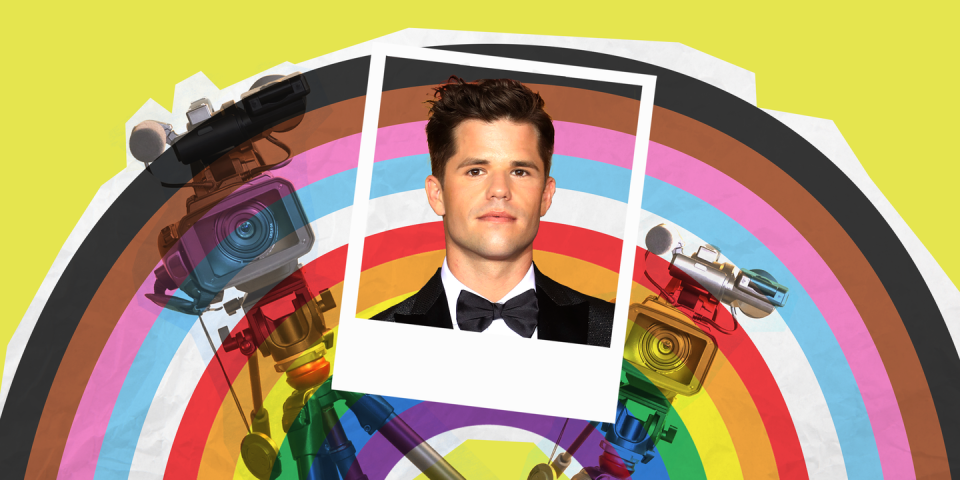
Rainbow Crew is an ongoing interview series which celebrates the best LGBTQ+ representation on TV. Each instalment showcases talent working on both sides of the camera, including queer creatives and allies to the community.
Next up, we're speaking to Charlie Carver about his work on Ratched, The Boys In The Band, and working as an out gay actor.
Since Charlie Carver first appeared on Desperate Housewives — "Maybe the gayest show of all" — the oldest of the Carver twins has carved out quite a career for himself. An early stint on Teen Wolf led to Damon Lindelof's The Leftovers, and Charlie's now starring in two back-to-back Ryan Murphy productions, Ratched and The Boys in the Band.
On top of all that, Carver will soon spread his wings in The Batman, taking on a yet-to-be-disclosed role: "I can’t tell you a damn thing," he says when pressed on the subject. Still, regardless of what part he might be playing, Charlie's now enjoying the kind of career most actors would be... well, desperate for.
This wasn't always guaranteed though. Back when Carver came out as gay in 2016, he "ran through the worst-case scenario," fearing that he might be pigeonholed or even endanger his career moving forward. Thankfully, the opposite came to pass, and just earlier this year, Charlie was given the 'Gamechanger Award' by GLSEN Respect Awards for all his achievements over the past decade.
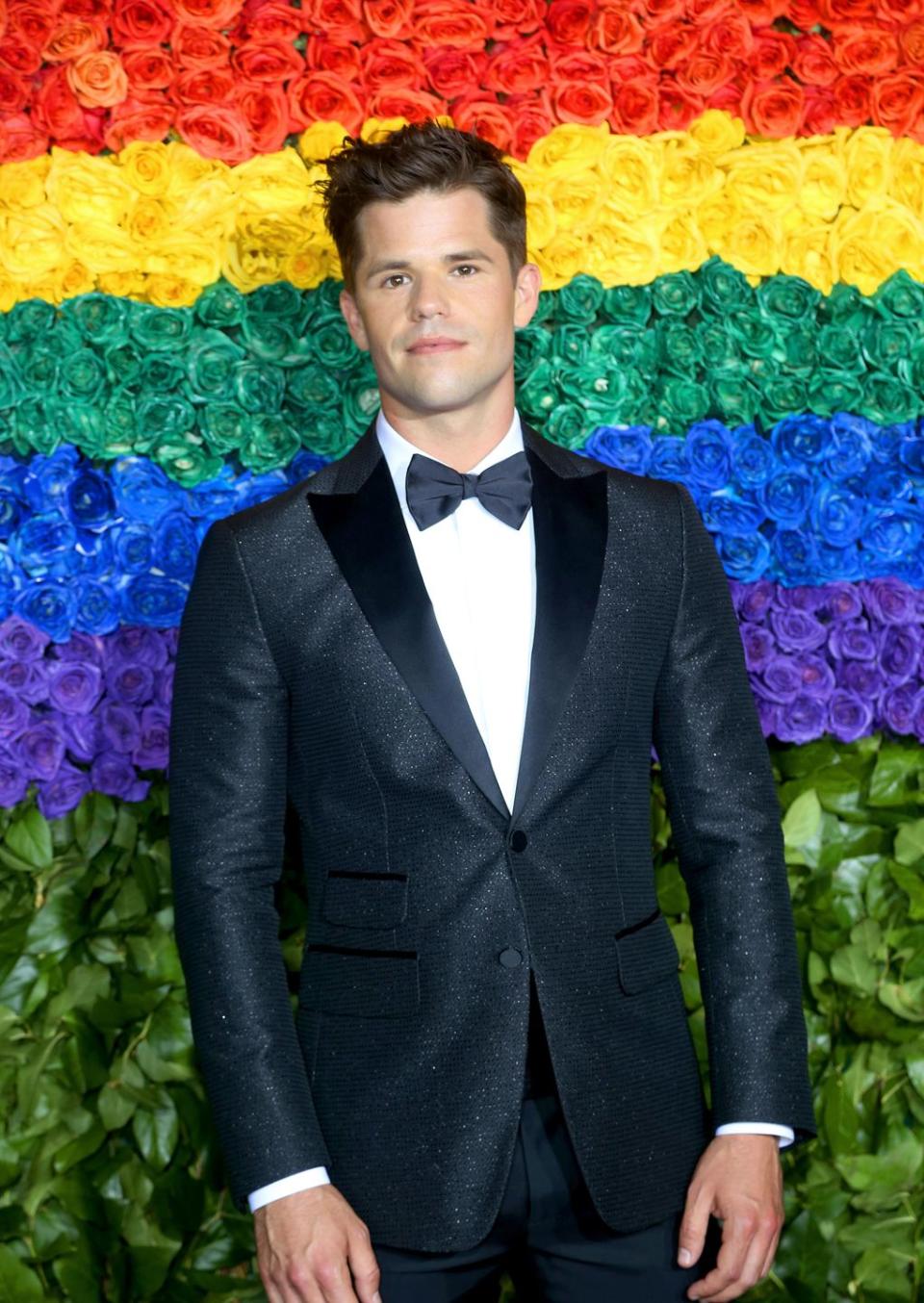
We sat down with Carver via Zoom to discuss The Boys in the Band, a potential Desperate Housewives reboot, and of course, all things Ratched.
What first drew you to the role of Huck in Ratched?
First of all, I love Ryan Murphy so much. I appreciate what he’s done, and the way that everything he makes is in dialogue with the zeitgeist, and also pushes things forward, whether that’s in terms of representation or subject matter. And I love him too as a person.
But then, Huck, in particular, was the first time I’ve really been given the opportunity to work from a physical place with the special effects makeup that I had on. It was a challenge for me. But that's what made it very exciting, to have something to really sink my teeth into and explore.
How long did it take to apply Huck's make-up?
Initially, it took about four to five hours in the chair to do each morning. And that speeds up as the team gets more accustomed to putting it on. It ends up also just passing by you – you’ve done it so many times, and it seems pretty quick.
A post shared by Charlie Carver (@charliecarver) on Sep 18, 2020 at 4:06pm PDT
The one thing that was so weird for me is, I’ve never worked with a full scleral lens. One of my eyes had this full lens in it, and I couldn’t see out of it. I’m a klutz to begin with, but my depth perception was completely thrown by the process [laughs]. I was just walking into stuff all the time on set.
But, it’s one of those immediate things. It’s sort of a physical experience, having that stuff on your face and in your eye. It begins to shape how you are in the world. And that is, I think, the magic trick – the alchemy that an actor is attracted to. It’s kind of shifting into an unknown or unfamiliar place, and playing from there.
Evil characters are often scarred or disfigured in Hollywood, perpetuating harmful stereotypes, but I'd argue Huck is probably the only nice guy in the whole show.
[laughs] I might agree with that too.
Was that something you were mindful of going into this project?
I definitely felt a responsibility to honour several different kinds of experiences. Not only does Huck have these scars on his face, but he’s lost part of his hand – he’s somewhat disabled. So to tell that story honourably, and to do research... There was a sense of communion with the character.
I had three or four of the scripts in my hand before we started filming, but I didn’t necessarily know where the character was going, or how they were going to get there. But the purity of Huck – he undergoes this huge journey over the course of the season, into self-acceptance and self-love. There was this pure, good, honourable person at the core of it all.
You mentioned that you only had three or four scripts at first – How did you feel when you got to the finale and read the death scene for Huck?
[groans] Ugh! OK, so, I did know in advance that I wouldn’t make it past the first season, which is kind of liberating. You know you’re probably going to have an impactful death.
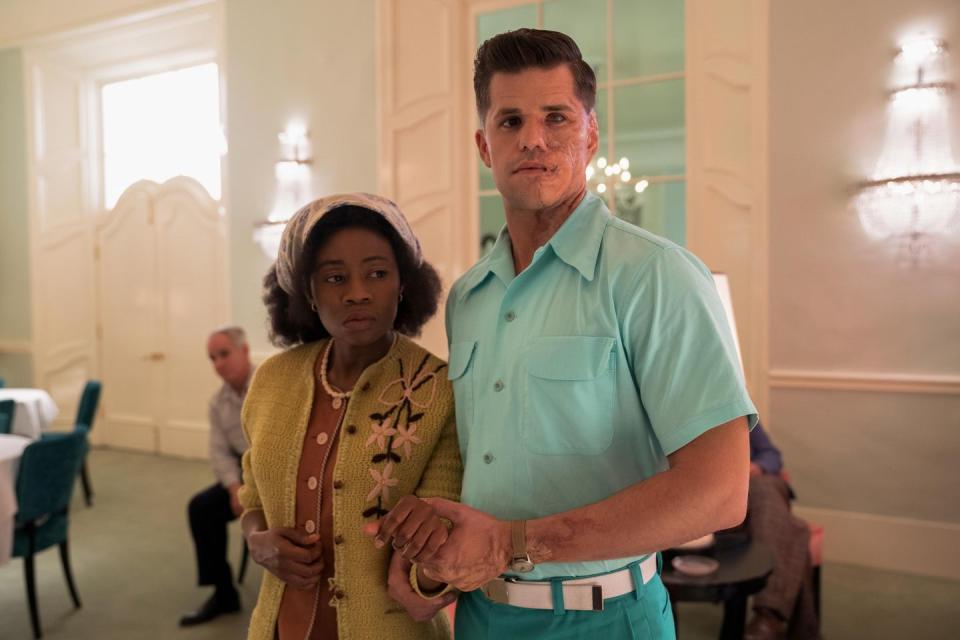
And it’s sad. There was a split mentality about it. On one hand, I could create the biggest arc for the character, knowing he wasn’t going to be around. But it was sad to let it all go. I had a very sentimental relationship with Huck.
You mentioned earlier how much you love working with Ryan Murphy, and obviously you’ve got The Boys in the Band coming up as well. Would you ever be interested in working on American Horror Story?
Oh, of course, if Ryan would have me, I would do that. I think that just sounds like so much fun. What a gift to an actor. Go for it.
I feel like there are lots of parallels between Ratched and American Horror Story...
Sure, sure. And that’s what made Ratched so fun. There’s this kind of baroque quality. There’s a believability to it, and I think it’s grounded by the performances and the characters. But you get to do things that we don’t get to do in our average lives — and certainly not in most TV or film ones.
That’s such a gift as an actor, and that’s why American Horror Story is so fun to watch, and probably so fun to act in. So, hi Ryan, I’m available if you want me [laughs].
Let’s make it happen! And going back to The Boys in the Band, what does it means for you personally to star in such an important gay story with an openly queer cast?
It will be one of the honours of my life to not only have been part of the production, both on stage and on film, but to have shared in that with all of those guys. We really became a family, both on Broadway and while shooting the film in Los Angeles. There was such a shared sense of experience and identity.
I think things have certainly gotten easier as an out actor in Hollywood. But most of the time, I’m the only out person on a set, and while that’s not necessarily lonely, it does do things to you. There’s a sense of modulation about how authentically I can interact with people.
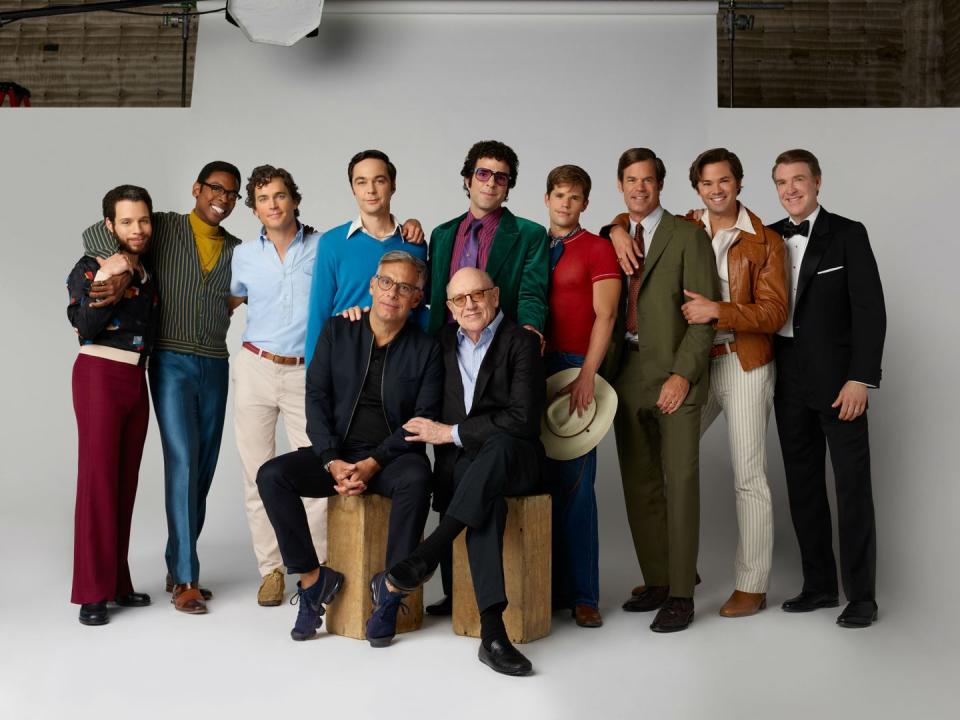
So that, in terms of a personal and professional experience, was very special. And to be a part of a story that has existed for 50 years; one that really was, and certainly represents, a paradigm shift in representation, at least in American culture. That’s important.
I think there’s a huge chunk of gay history in America, a piece of time that feels lost in some ways because of how many people we lost to the AIDS epidemic. And to feel in this play a sense of identity with, and a continuum to, 1968 – there is an indelible quality or spirit to queer life that I don’t think could ever be removed from us, or erased from the narrative. This play is picking it back up, and re-canonising it for a new generation.
Speaking of gay history, one of my favourite shows of all time is Desperate Housewives. A lot of time has passed since the show ended, but would you ever be interested in returning for some kind of revival?
Oh, sure! If that’s what the people want, then give them what they want. That would be a blast, to go back to Wisteria Lane. Gosh, I count my blessings for having had that be my first job in the business. And, wow, what a way to start.
Since coming out, you've played a number of queer characters on screen. Was that a conscious decision?
For a while, it was what I was up for, most often. The prevailing wisdom when I decided to come out was: you know, even if you do choose to come out, you have to be very careful about getting pigeonholed.
And I took issue with that. I found it kind of offensive. I don’t want to be limited as a gay man or a gay actor. I don’t want to be limited to only playing gay roles. But at the same time, to be told I might be endangering my career by choosing to play more than one of them? That just didn’t seem true or accurate of the times.
I’m a part of a shift happening where, yes, I’m a gay actor who’s taking on gay roles, but there are so many more queer people stepping into positions of power, whether that is as producers or writers or directors. Suddenly, the queer narratives that become available are complicated and different from one another.
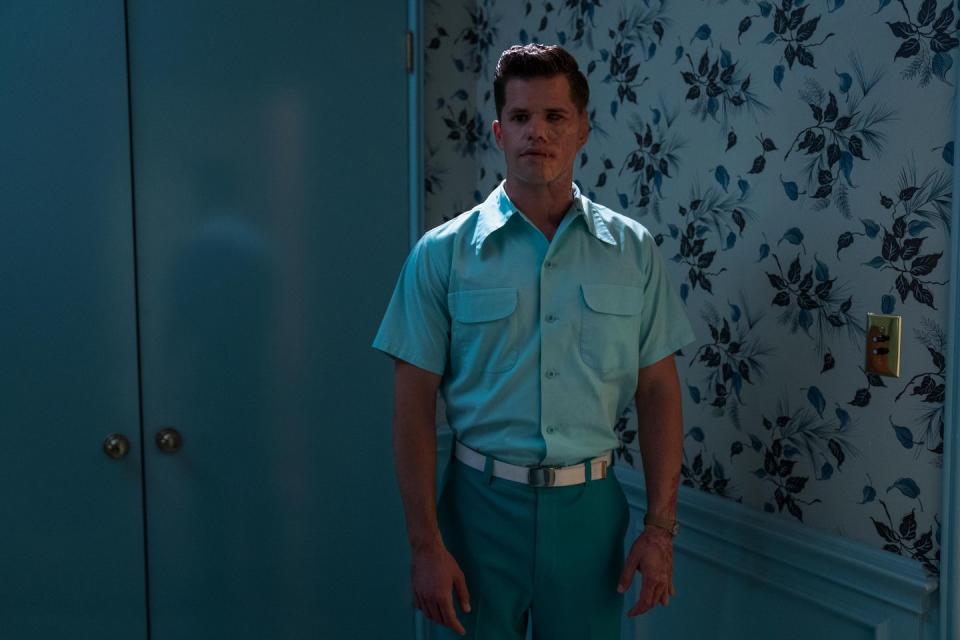
As more representation becomes available, the breadth of queer experience and human experience becomes available to play. And those are stories that I am just interested in and want to tell. Because I think that they are impactful for a wide audience, not just a queer audience, and they’re stories that haven’t been told.
There’s been quite a shift over the last five years in particular. A lot more drive and authenticity that wasn’t there before.
Yes. And as an actor, I’m interested to see: what kind of situations do gay characters find themselves in? What kind of mashups of genre can these characters exist in so that their sexuality is not the first thing that you notice about them?
Because, as a gay person, it isn’t the first thing I want someone to know about me. I don’t care if it is, but, we’re all complex human beings. And I want to see that represented better onscreen.
What do you think the industry needs to do to improve queer representation?
I don’t think anything can be achieved instantaneously. So much of what needs to happen is more equity behind the scenes, and having all kinds of people in positions of power. I think that's what needs to happen most. Even on the crew side. Crews can be more reflective of the world we actually live in.
Representation is important. But I wouldn’t want any story to be confined by obligations to represent everybody well all the time, you know? Not all stories have to be pretty. Not all stories have to be representative of a community, even though they may be represented in those stories.
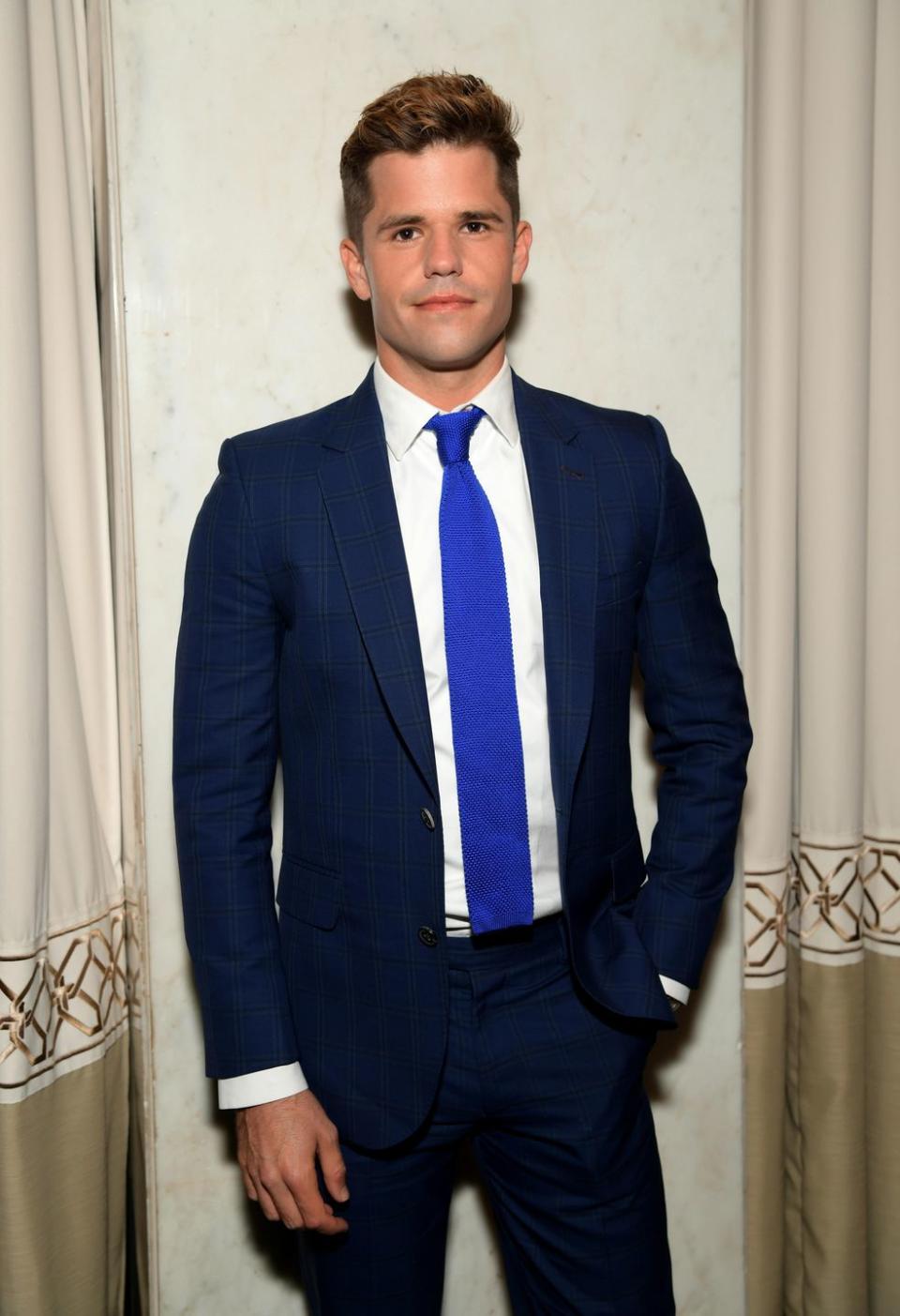
There’s a direct relationship between representation and an audience developing a sense of affection for a community or a member of a community. The trans community – particularly the black trans community, and black trans women – have had almost no representation onscreen. There’s a direct relationship between that and the transphobic violence which exists in the United States and across the world.
When you came out, what was the fan response like at the time?
Oh my God. The fan response was incredible. I felt immediately held by everybody who, I guess, had taken a shine to me in the work I’d done.
In your head, you, of course, run through the worst-case scenario. But I just feel I was so supported by fans and the entertainment industry. I’m insulated by a lot of privilege in that. But it wasn’t the easiest decision, and I’m so grateful for how it turned out.
You might have worried about your career after that, but here you are with huge projects like Ratched, and The Batman coming up too. It must be really gratifying to look back and know you made the right choice.
It is gratifying. I feel I get to participate more authentically and on my own terms. Whereas, before, I don’t know – with an act of omission, it felt like I was pretending to be somebody else for everybody else’s comfort. And I don’t think that’s how you want to live as an artist or as a creative person.
By having been authentic about that, I can take bigger risks and accomplish more as myself moving forward.
A post shared by Charlie Carver (@charliecarver) on Sep 21, 2020 at 3:35am PDT
Almost every queer person can relate to that feeling, pretending to be something they’re not at one time or another.
Yeah, you realise that you’re accommodating other people’s feelings over your own. You’ve got to put yourself first, and trust that by being honest with yourself, and putting yourself first, you’re going to be a better person to everyone else.
I just feel so fortunate to have made a personal decision in the middle of this journey, and to have had it bear the kind of fruit it’s beginning to bear.
Digital Spy has launched its first-ever digital magazine with exclusive features, interviews, and videos. Access this edition with a 1-month free trial, only on Apple News+.
Interested in Digital Spy's weekly newsletter? Sign up to get it sent straight to your inbox.
You Might Also Like

